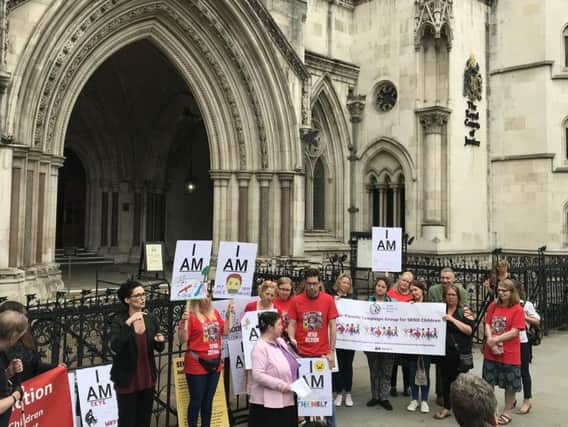'Young people's futures are being blighted by genuine special educational needs funding crisis', High Court told


Advertisement
Hide AdAdvertisement
Hide AdLawyers representing three families, including the mother of 14-year-old Benedict McFinnigan from Scarborough, claimed that funding to support those with special educational needs and disabilities (Send) was “manifestly insufficient”, in a case brought against Chancellor Philip Hammond and Education Secretary Damian Hinds.
'Critical under-funding'
Jenni Richards QC told the hearing, which continues tomorrow, that there was “clear and incontrovertible evidence” of a “substantial national shortfall” in funding.
“The evidence strongly supports the contention that there is a genuine crisis in Send funding,” Ms Richards said in her written submissions. “Importantly, it is not the case that the shortfalls in funding are currently being absorbed by local authorities with relatively little impact on front-line provision.
Advertisement
Hide AdAdvertisement
Hide Ad“On the contrary, the direct result of the lack of funding is that children with Send are not being properly educated, notwithstanding the fact that Parliament has required their needs to be met. This has the potential to blight the lives of these children forever, seriously limiting the scope for them living independent lives as adults.”
She said “critical” under-funding was leaving some of the most vulnerable children without the basic educational support that they need.
The case has been brought by three children on behalf of all young people in England and Wales who rely on Send funding. All three children, Nico Heugh Simone, 15, from East Sussex, Dakota Riddell, aged nine, of Birmingham, North Yorkshire’s Benedict McFinnigan, are acting through their mothers who claim that the Government’s approach to Send funding is “unlawful”.
Ms Richards argued that Mr Hammond acted unlawfully when setting the national budget in October 2018, and that Mr Hinds did so when making available additional Send funding in December 2018 - claims that government lawyers flatly deny.
Advertisement
Hide AdAdvertisement
Hide AdMs Richards said that the Government’s own statistics showed a “rising demand” for Send funding which was “not been matched by anything like a commensurate increase in funding”.
Defence
Government lawyers said Mr Hammond had recognised rising demand for Send funding and Mr Hinds had “made it clear” that ‘High Needs’ would be one of his priorities ahead of the 2019 Spending Review.
Sir James Eadie QC told the court that Mr Hammond had “consistently given careful consideration and appropriate weight” to the situation, but his focus was on “competing and pressing” calls for “scarce” government funding.
“These decisions have been taken in full knowledge of the challenges faced by local authorities... in addition, they have been taken in the context of a complex policy area - school funding,” Sir James said.
Mr Justice Lewis, who is hearing the case, is expected to reserve judgement to a later date following tomorrow's proceedings.